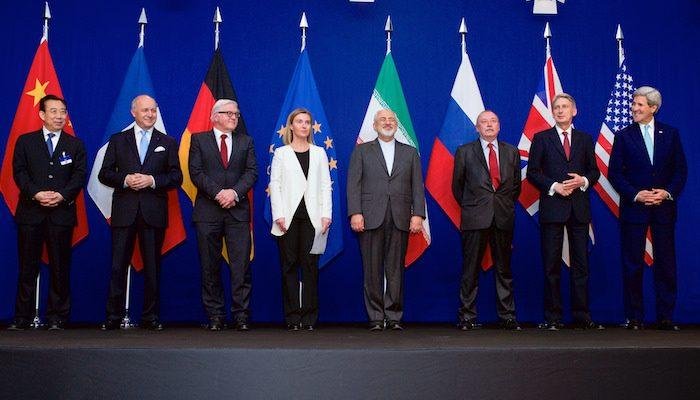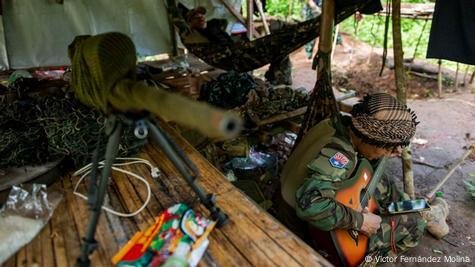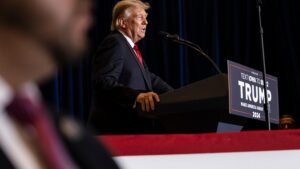In the tangled tapestry of history, the threads of conflict and diplomacy intertwine. Amidst the verdant hills and winding rivers of Myanmar, a tale unfolds where a rebel army, hardened by years of struggle, now stands poised at the cusp of dialogue. Backed by the formidable presence of China, they extend an olive branch to the ruling junta, signaling a potential turning point in the nation’s tumultuous journey. As the world watches with anticipation, this article delves into the complexities of this pivotal moment, where the weight of the past and the promise of a different future hang in the balance.
– Diplomacy Amid Conflict: Myanmar Rebel Army Seeks Dialogue with Junta Under Chinas Shadow
Negotiations in the shadow of Beijing? Amidst the ongoing conflict in Myanmar, the Restoration Council of Shan State (RCSS), a rebel army in the eastern part of the country, has expressed interest in initiating dialogue with the junta. China’s considerable influence in the region looms large as a potential mediator or influencer in these talks.
A sticky situation? The RCSS is one of the myriad rebel groups in Myanmar that have been in armed conflict with the junta since its seizure of power in a military coup in February 2021. While the junta has made some overtures towards dialogue with rebel groups, there is skepticism about their sincerity, given their continued use of violence against civilians. China’s involvement, as a major player in the region with significant economic and political ties to both Myanmar and the RCSS, could potentially complicate or facilitate the negotiations.
- Unraveling the Complex Dynamics: Chinas Role in Facilitating Myanmar Peace Talks
China’s Intricate Facilitation: Mediating Myanmar Peace Talks
China’s role as a facilitator in the Myanmar peace talks cannot be understated. Its strategic interests in Myanmar, including access to the Indian Ocean through the Kyaukphyu deep-sea port, drive its keen interest in fostering stability and preventing potential spillovers across its border. China has used its influence to push for negotiations between the military junta and ethnic armed groups, leveraging its economic and diplomatic ties with both sides.
Beijing’s diplomatic maneuvers have been carefully calibrated to maintain a balance between the military regime and the ethnic militias. China has provided military and economic support to the former while urging moderation and prioritizing political dialogue. Its engagement also reinforces its regional leadership ambitions and highlights its commitment to non-interference policies that align with its broader foreign policy objectives.
China’s Role in Myanmar Peace Talks
| Actors | Objectives | Role |
|—|—|—|
| China | Maintain stability, access to resources | Facilitator, mediator |
| Military junta | Maintain power, secure ceasefire | Accepts negotiations with ethnic groups |
| Ethnic armed groups | Gain political autonomy, representation | Demand federalism, ceasefire |
– Pathways to Reconciliation: Recommendations for Advancing a Sustainable Peace Process in Myanmar
Pathways to Reconciliation: Recommendations for Advancing a Sustainable Peace Process in Myanmar
- Establish a credible and inclusive peace process: Engage all relevant stakeholders, including ethnic armed groups, political parties, civil society organizations, and international actors, in a transparent and accountable manner. Foster open dialogue, mutual respect, and a commitment to non-violence.
- Address the root causes of conflict: Tackle historical grievances, political marginalization, economic inequality, and human rights violations that have fueled the conflict. Engage in truth-seeking, acknowledge past atrocities, and implement meaningful reforms to address underlying grievances and create a foundation for lasting peace.
To Wrap It Up
As the Myanmar junta grapples with internal divisions and international pressure, the Kachin Independence Army (KIA) stands poised at a crossroads. With the support of China, the rebel army has signaled its willingness to engage in talks, raising hopes for a peaceful resolution to decades of conflict. However, the path ahead remains uncertain, as the junta’s track record on negotiations and human rights remains questionable. The outcome of this critical juncture will shape the future of Myanmar, leaving the world holding its breath as a new chapter unfolds.


